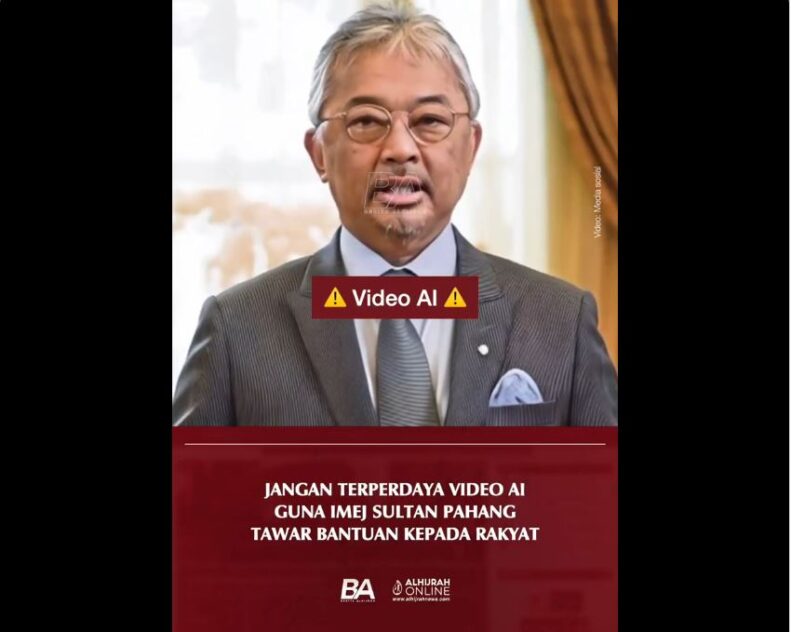Letter to Editor
MORE Malaysians are turning to TikTok and Artificial Intelligence (AI) to improve their English.
From short grammar videos to interactive chatbots offering real-time feedback, digital platforms are reshaping how English is learned, helping learners build clarity and confidence.
But how reliable are these tools? Can short videos and AI-generated responses really replace structured instruction? And what does this shift mean for the future of English education in Malaysia?
This shift responds to a long-standing challenge. Despite English being a core subject in Malaysian education, expressions like “Can go already,” “I want to follow you,” and “Yesterday I go KLCC” remain common. While widely understood, they reflect persistent gaps in fluency and accuracy.
Malaysia ranks highly on the EF English Proficiency Index, yet many still struggle to speak English comfortably, especially in formal settings.
This is not entirely due to a lack of motivation or confidence level. It stems from linguistic interference, an exam-oriented education system, and the anxiety many feel about being judged or making mistakes in
public.
One major issue is what linguists call first language interference. A sentence like “I want to follow you” often comes from a direct translation of “Saya nak ikut awak,” which in English means “I want to come with you.”
Malay verbs do not change with tense, which explains common mistakes such as “Yesterday I go.” Malay also allows omission of subjects, resulting in sentences like “Is raining now.”
These are not random errors. They are predictable outcomes from navigating multiple languages simultaneously.
Prepositions present another ongoing challenge. Phrases like “good in singing” or “married
with her” are frequently used. Are they grammatically correct? No.
But have you ever wondered why they seem so acceptable? English prepositions are inconsistent and difficult to master through rules alone.
They require repeated exposure and real-world usage, which traditional classrooms often fail to provide.
Manglish, the local blend of English, Malay, and Chinese, adds richness to informal conversation but complicates the shift to formal English.
While it fosters local identity, it often obscures grammatical rules and blurs the line between casual and standard usage.
For many learners, code-switching between the two remains difficult. At the core of this issue is how English is taught.
Malaysian education has traditionally focused on grammar memorization, structured writing, and national exams.
Speaking skills, spontaneous communication, and peer-to-peer interaction often receive less emphasis. As a result, students may write well but hesitate to speak, fearing embarrassment or judgment.
Now, English learning is no longer bound by chalk and talk. Why? Digital platforms are
changing the game.
On TikTok, Malaysian educators and language influencers explain grammar, correct common errors, suggest better word choices, and demonstrate how English is used in everyday conversation.
These short videos are accessible, culturally relevant, and often the first time learners find English engaging and easy to follow.
AI tools such as ChatGPT and DeepSeek also offer new opportunities. These platforms provide a private and supportive space where users can practise English, ask questions, and receive instant corrections.
Simulated conversations offer practical speaking experience without fear of judgment. For learners who associate English with stress or shame, this offers a sense of safety and control.
Beyond grammar and pronunciation, these tools are rebuilding something far more important: confidence.
Learners can take ownership of their progress. Mistakes are treated as part of the learning process, not as failure.
The pressure that often surrounds English learning begins to fade, replaced by self-direction and curiosity.
Much of this progress is made possible through AI and Tiktok. For younger learners, this could mark a generational shift.
Children who engage with AI writing tools and educational TikToks from an early age are more likely to develop communicative competence, comfort with trial and error, and confidence in using English
across settings.
As digital learning becomes part of everyday life, fear around English may finally give way to fluency. Modern linguistics increasingly values communicative competence over grammatical perfection.
Fluency is not defined by sounding like a native speaker. It is about the ability to convey ideas clearly, effectively, and with confidence, even if the grammar is not flawless.
What matters most is being understood. English in Malaysia is evolving. It is being shaped by culture, global access, and now, by digital innovation.
With the help of AI and platforms like TikTok, learners are no longer tied to outdated models of instruction. They are developing their voices in new and empowered ways.
This is no longer only a language issue. It is about opportunity, inclusion, and identity. And it
is already unfolding in every video viewed, every question asked, and every learner who
chooses to speak despite their fears.
So the question remains, can we afford to overlook the role of AI and TikTok in English learning today? —June 17, 2025
Shazlin Niza Abdul Razak is an English language lecturer at the Centre for Foundation Studies in Science (PASUM), Universiti Malaya.
The views expressed are solely of the author and do not necessarily reflect those of Focus Malaysia.
Main image: Fluent Bolo









